As much as we love sun-kissed snaps, handling the scorching hot ball during summer is a handful! And everything needs to be dealt with extra care during these hot simmering days including plants, foods, health, body, skin, and whatnot. Today, Aarvy Palette is at your service to let you know about the interesting tips , benefits of sunscreen and secrets to cherish your skin under this hot guy, I mean our SUN!
The sun is a powerful force that can have both positive and negative effects on our skin. While sunlight is necessary for our bodies to produce Vitamin D, overexposure to the sun’s ultraviolet (UV) rays can cause significant damage to our skin. One of the most common forms of sun damage is sunburn, which occurs when the skin is exposed to too much UV radiation. Sunburn can cause redness, pain, and even blistering, and it increases the risk of skin cancer.
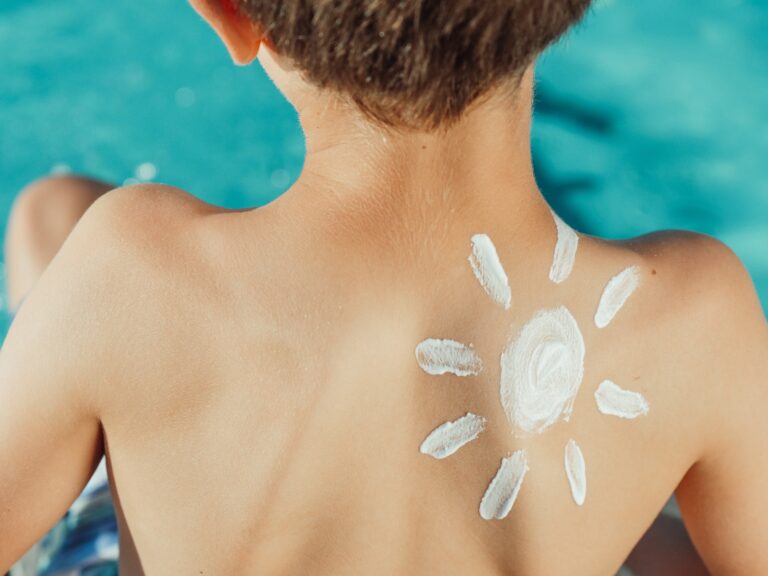
Let’s talk about the biggest demerit of Summer which is none other than TAN! So what is the reason behind this tanning? The popular answer is the sun but do you know that our body is using tan as a defense shield to protect our skin from UV rays? Which are also known as Ultra Violet rays that cause Skin cancer and skin diseases. Back to tanning, our body releases a substance called Melanin to protect the skin from harmful rays, but being exposed to the sun for a long time can cause serious damage to our skin. Therefore it is always advisable to cover ourselves from the sun.
WHY SUNSCREEN IS IMPORTANT?
Sunscreen is a must for any skincare routine and should not be ignored. Not only does it help protect your skin from harmful UV rays, but it can also help prevent premature aging, sunburn, and even skin cancer. However, not all sunscreens are created equal, and it’s important to choose one that suits your skin type and needs.
When it comes to choosing a sunscreen, it’s essential to look for one that provides broad-spectrum protection against both UVA and UVB rays. UVA rays can penetrate deep into the skin and cause damage that can lead to wrinkles and age spots, while UVB rays can cause sunburn and increase the risk of skin cancer. A sunscreen with an SPF (sun protection factor) of at least 30 is also recommended.
Another important factor to consider when choosing sunscreen is your skin type. If you have oily or acne-prone skin, you may need to opt for a lightweight, oil-free formula that won’t clog your pores. If you have dry or sensitive skin, you may need sunscreen with added moisturizers to keep your skin hydrated and protected.
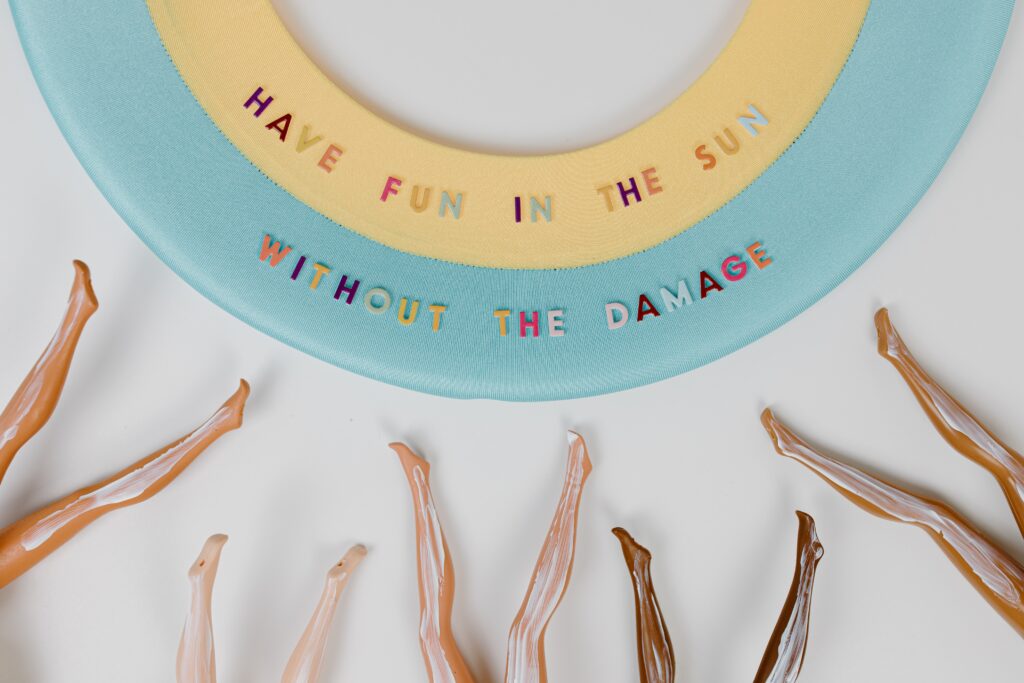
To fully enjoy the benefits of sunscreen, it is important to apply it correctly. Experts recommend applying sunscreen at least 15 minutes before going outside and reapplying every two hours or after swimming or sweating. Be sure to apply enough sunscreen to cover all exposed skin, including your face, neck, and ears.
In addition to its many benefits for your skin, incorporating sunscreen into your daily routine can also help boost your overall health and well-being. By protecting your skin from the sun’s harmful rays, you can help prevent skin cancer and other serious health issues.
In summary, sunscreen is an essential part of any skincare routine and should not be overlooked. By choosing the right sunscreen for your skin type and needs and applying it correctly, you can enjoy the many benefits of protected and healthy skin.
WAYS TO PROTECT THE SKIN FROM SUN:
The Foremost thought that hits us whenever we think about summer skincare is Sunscreen! Which is also one of my favorite skin products out there. Nowadays, there are plenty of branded sunscreens available in the market which might confuse what to choose, what suits my skin, and what’s really worth the money and hype. As the skin product companies are rising so are the influencers, which can be seen recommending plenty of sunscreens, don’t worry I’m not gonna give you lots of recommendations, I’ll list out the types of sunscreen and what ingredients our face does need during summers and how to prevent tanning.
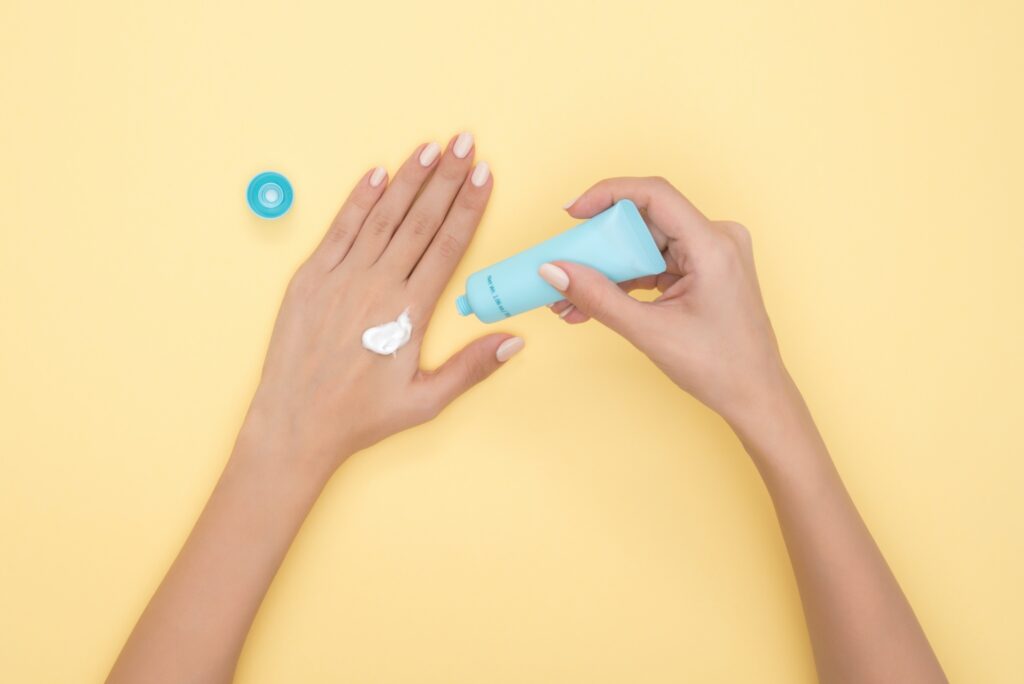
MUST INGREDIENTS IN YOUR SUNSCREEN:
Sunscreen is a crucial part of any skincare routine, helping to protect the skin from harmful UV radiation that can cause sunburn, premature aging, and even skin cancer. To ensure that your sunscreen is effective, it is important to look for certain key ingredients.
- Zinc oxide: Zinc oxide is a mineral that sits on top of the skin, reflecting UV rays and preventing them from penetrating the skin. It is a broad-spectrum sunscreen ingredient that protects against both UVA and UVB rays.
- Titanium dioxide: Like zinc oxide, titanium dioxide is a mineral that reflects UV rays. It is also a broad-spectrum sunscreen ingredient that protects against both UVA and UVB rays.
- Avobenzone: Avobenzone is a chemical sunscreen ingredient that absorbs UVA rays. It is often combined with other sunscreen ingredients to provide broad-spectrum protection.
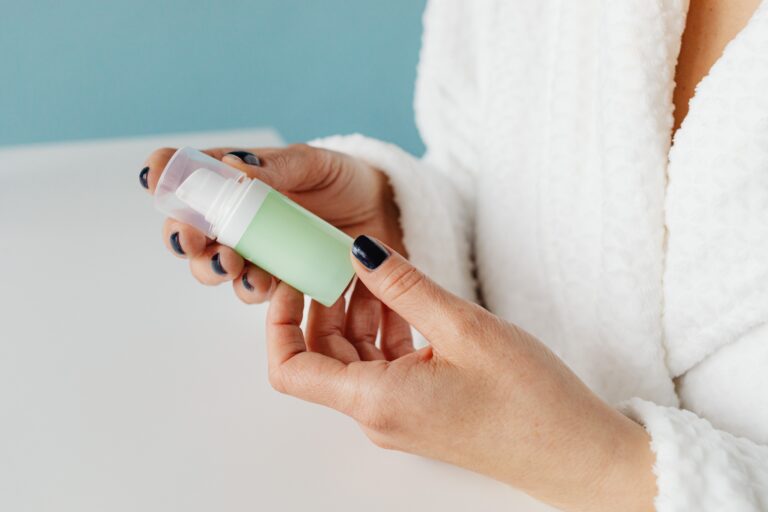
- Octisalate: Octisalate is a chemical sunscreen ingredient that absorbs UVB rays. It is often used in combination with other sunscreen ingredients to provide broad-spectrum protection.
- Octocrylene: Octocrylene is a chemical sunscreen ingredient that helps stabilize other sunscreen ingredients and provides protection against both UVA and UVB rays.
- Homosalate: Homosalate is a chemical sunscreen ingredient that absorbs UVB rays. It is often used in combination with other sunscreen ingredients to provide broad-spectrum protection.
For amazing skincare products that cater to all skin types, be sure to check out my latest blog post on “THE BEST SUMMER SKINCARE ROUTINE.” You won’t regret it!
By choosing a sunscreen that contains these key ingredients, you can ensure that your skin is protected from the harmful effects of the sun. When looking for sunscreen products, be sure to read the label carefully and choose one that provides broad-spectrum protection with a high SPF.
VARIOUS TYPES OF SUNSCREEN TYPES:
We need to ensure our choice of textures while selecting a sunscreen, sunscreen is available in different bases like cream base, gel, lotions, etc. Now let’s explore deeper into these different bases and how they are different from each other!
- Sunscreen lotion: Sunscreen lotion is one of the most common types of sunscreen. It is easy to apply and absorbs quickly into the skin. Sunscreen lotions are available in a range of SPFs, and they protect against both UVA and UVB rays.
- Sunscreen cream: Sunscreen cream is thicker and more emollient than sunscreen lotion, making it ideal for those with dry skin. It provides a hydrating layer of protection and is often available in a range of SPFs.
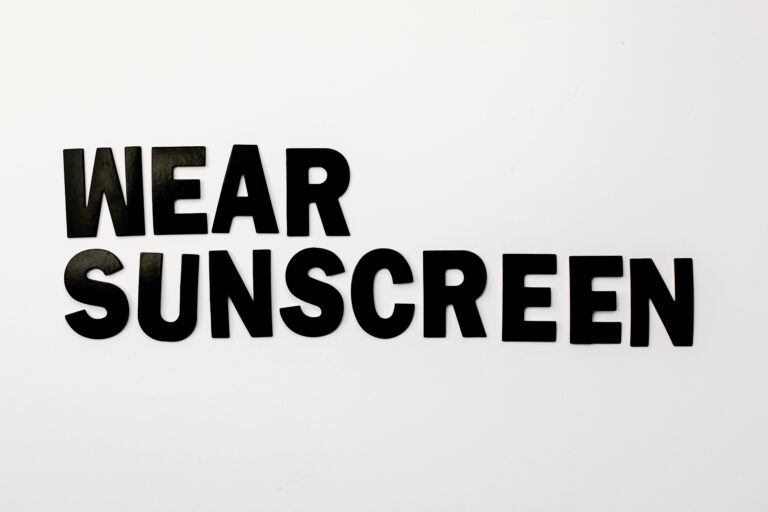
- Sunscreen gel: Sunscreen gel is a lightweight, non-greasy formula that is perfect for oily or acne-prone skin. It is quickly absorbed into the skin and does not leave a sticky or heavy feeling. Sunscreen gels are often water-resistant and protect against both UVA and UVB rays.
- Spray sunscreen: Spray sunscreen is an easy-to-apply formula that is perfect for those on the go. It provides quick, even coverage and is available in a range of SPFs. Spray sunscreen should be applied liberally and reapplied frequently, especially after swimming or sweating.
- Powder sunscreen: Powder sunscreen is a newer type of sunscreen that is perfect for touch-ups throughout the day. It is easy to apply and provides a matte finish, making it ideal for those with oily skin. Powder sunscreen is available in a range of SPFs and is often water-resistant.
When choosing a sunscreen, it is essential to consider your skin type, the level of activity you’ll be engaging in, and the amount of time you’ll be spending in the sun. Be sure to choose a sunscreen that provides broad-spectrum protection with a high SPF.








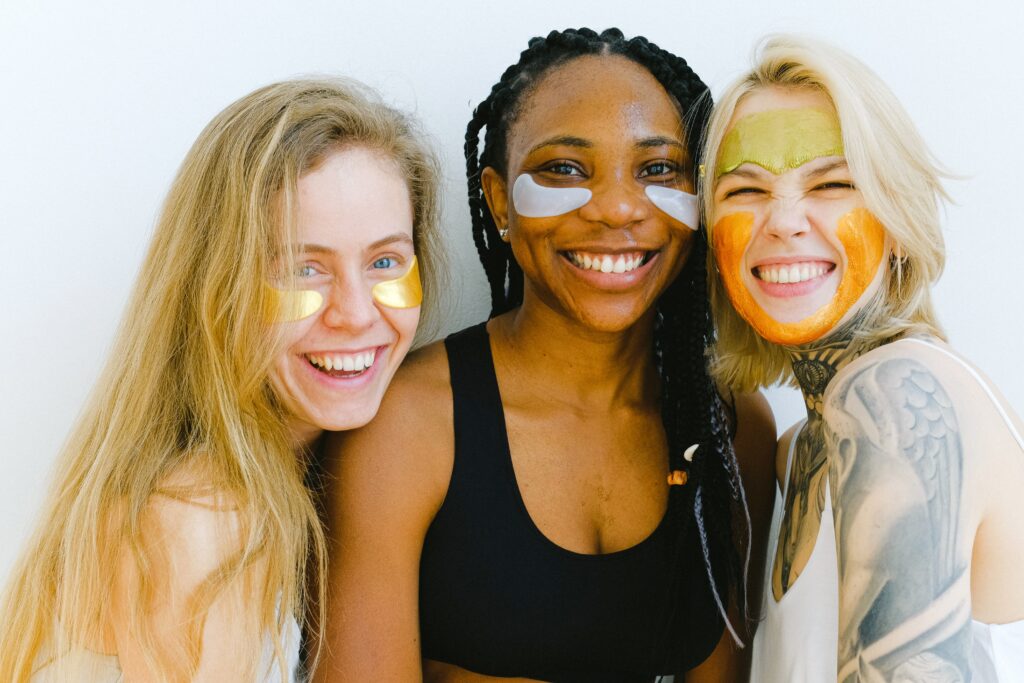
Pingback: Summer skin care routine to Prevent Acne prone skin in 2023 - Aarvy palette